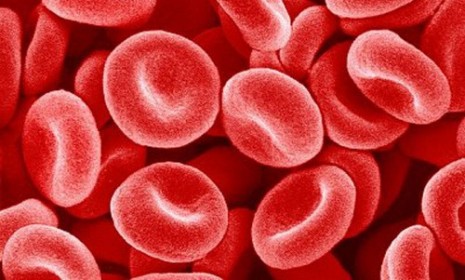The world's first man-made life form: Be afraid?
"Synthetic life" has arrived. It could open the door to much-needed medical advancements...or give terrorists a deadly new weapon

A free daily email with the biggest news stories of the day – and the best features from TheWeek.com
You are now subscribed
Your newsletter sign-up was successful
In what's being heralded as one of the most monumental scientific accomplishments in decades, researchers at the J. Craig Venter Institute have created an organism with man-made DNA. The "synthetic" bacterium is a result of injecting artificial genetic material into the empty body of a cell. In theory, artificial organisms offer solutions for many serious health and environmental problems, from cancer to oil spills. But critics worry that "playing God" could also have apocalyptic consequences. Is "synthetic life" worth the risk? (Watch an ATN News report about "synthetic life")
Beware of this creature: Constructing synthetic life "has unimaginable potential risks," says Oxford ethics professor Julian Savulescu in the BBC. By "engineering organisms that could never naturally exist," we expose ourselves to possible catastrophes — from bio-weapon terrorism to environmental disasters — so destructive they could wipe out life as we know it.
"'Artificial life breakthrough announced by scientists"
The Week
Escape your echo chamber. Get the facts behind the news, plus analysis from multiple perspectives.

Sign up for The Week's Free Newsletters
From our morning news briefing to a weekly Good News Newsletter, get the best of The Week delivered directly to your inbox.
From our morning news briefing to a weekly Good News Newsletter, get the best of The Week delivered directly to your inbox.
Reward outweighs the risk: The worries about synthetic life are entirely "misguided," says Ken MacLeod in the Guardian. Our "biosphere comes up with natural resistance to entirely new organisms every day." And while the threat of bio-terrorism "may be significant," it's "not in principle greater than those posed by natural organisms" that already exist. Besides, the potential is so "great," it trumps whatever theoretical concerns anyone may have.
"Humanity will thank heaven that this creator of synthetic life is playing God"
The scientists need to be accountable: Our newfound ability to create life "to our specifications" has "almost unimaginable promise," says David Ropeik in the Huffington Post. But "far less of that promise will be realized if the people doing this work" simply treat it as race for fame and fortune, and "fail to recognize and address [the public's concerns] about what they are doing."
"Scientists bring back artificial life — and our fear of Frankenstein"
A free daily email with the biggest news stories of the day – and the best features from TheWeek.com
-
 The ‘ravenous’ demand for Cornish minerals
The ‘ravenous’ demand for Cornish mineralsUnder the Radar Growing need for critical minerals to power tech has intensified ‘appetite’ for lithium, which could be a ‘huge boon’ for local economy
-
 Why are election experts taking Trump’s midterm threats seriously?
Why are election experts taking Trump’s midterm threats seriously?IN THE SPOTLIGHT As the president muses about polling place deployments and a centralized electoral system aimed at one-party control, lawmakers are taking this administration at its word
-
 ‘Restaurateurs have become millionaires’
‘Restaurateurs have become millionaires’Instant Opinion Opinion, comment and editorials of the day